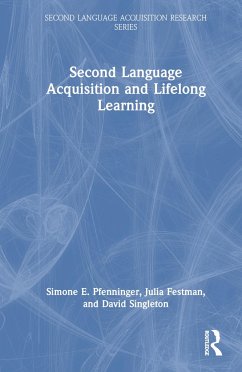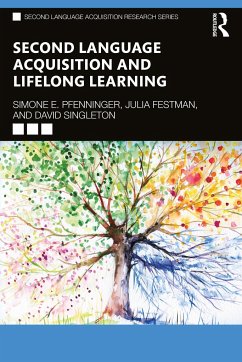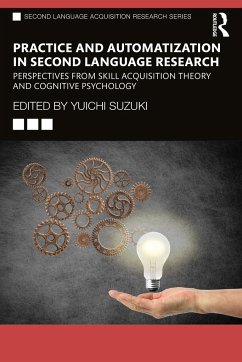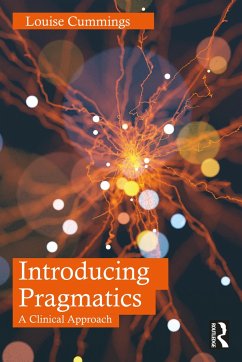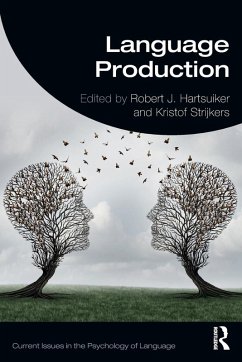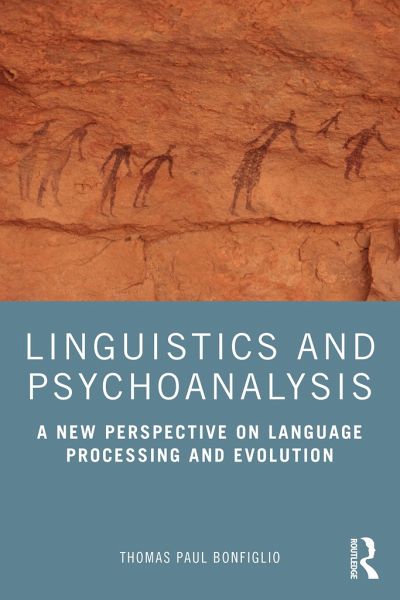
Linguistics and Psychoanalysis
A New Perspective on Language Processing and Evolution
Versandkostenfrei!
Versandfertig in 6-10 Tagen
40,99 €
inkl. MwSt.
Weitere Ausgaben:

PAYBACK Punkte
20 °P sammeln!
This groundbreaking, provocative book presents an overview of research at the disciplinary intersection of psychoanalysis and linguistics.Understanding that linguistic activity, to a great extent, takes place in unconscious cognition, Thomas Paul Bonfiglio systematically demonstrates how fundamental psychoanalytic mechanisms-such as displacement, condensation, overdetermination, and repetition-have been absent in the history of linguistic inquiry, and explains how these mechanisms can illuminate the understanding of the grammatical structure, evolution, acquisition, and processing of language....
This groundbreaking, provocative book presents an overview of research at the disciplinary intersection of psychoanalysis and linguistics.
Understanding that linguistic activity, to a great extent, takes place in unconscious cognition, Thomas Paul Bonfiglio systematically demonstrates how fundamental psychoanalytic mechanisms-such as displacement, condensation, overdetermination, and repetition-have been absent in the history of linguistic inquiry, and explains how these mechanisms can illuminate the understanding of the grammatical structure, evolution, acquisition, and processing of language. Reexamining popular misunderstandings of psychoanalysis along the way, Bonfiglio further proposes a new theoretical configuration of language and expertly sets the future agenda on this subject with new conceptual paradigms for research and teaching.
This will be an invaluable, fascinating resource for advanced students and scholars of theoretical and applied linguistics, the cognitive-behavioral sciences, metaphor studies, humor studies and play theory, anthropology, and beyond.
Understanding that linguistic activity, to a great extent, takes place in unconscious cognition, Thomas Paul Bonfiglio systematically demonstrates how fundamental psychoanalytic mechanisms-such as displacement, condensation, overdetermination, and repetition-have been absent in the history of linguistic inquiry, and explains how these mechanisms can illuminate the understanding of the grammatical structure, evolution, acquisition, and processing of language. Reexamining popular misunderstandings of psychoanalysis along the way, Bonfiglio further proposes a new theoretical configuration of language and expertly sets the future agenda on this subject with new conceptual paradigms for research and teaching.
This will be an invaluable, fascinating resource for advanced students and scholars of theoretical and applied linguistics, the cognitive-behavioral sciences, metaphor studies, humor studies and play theory, anthropology, and beyond.





